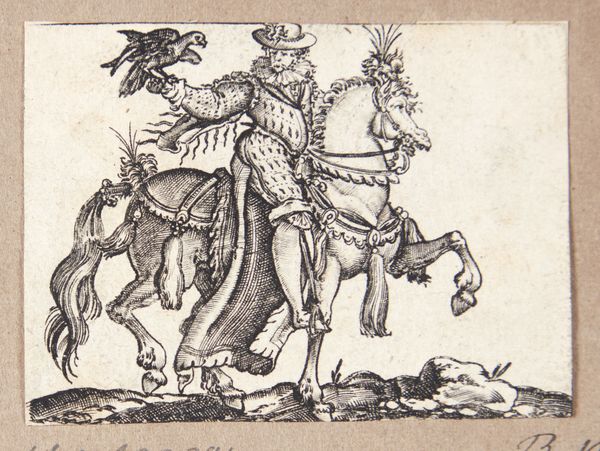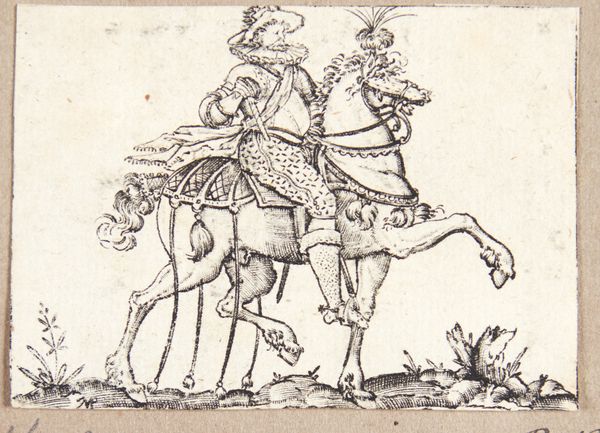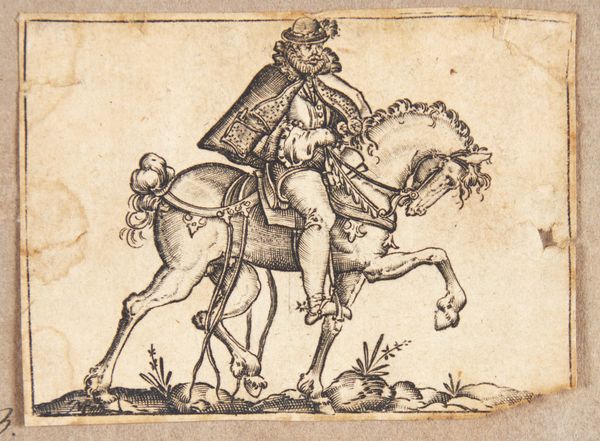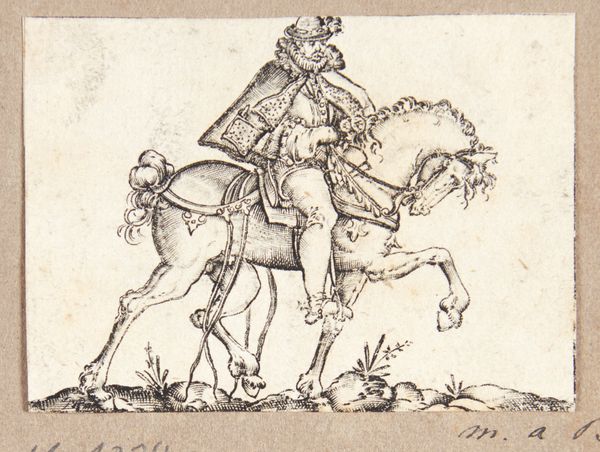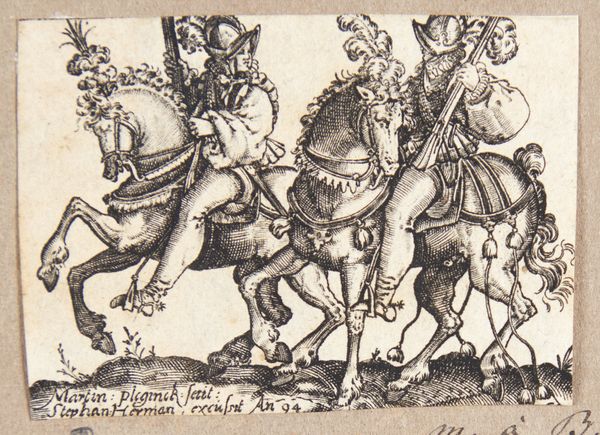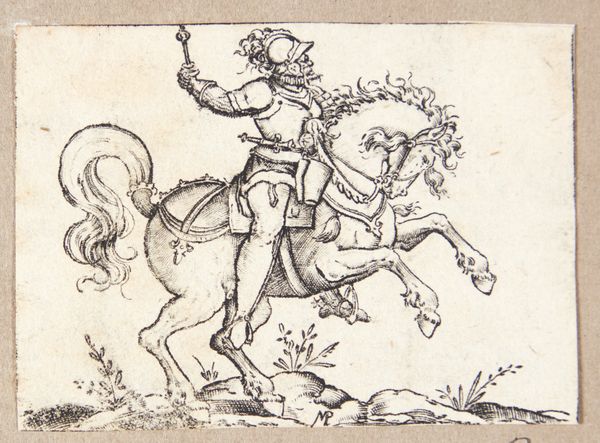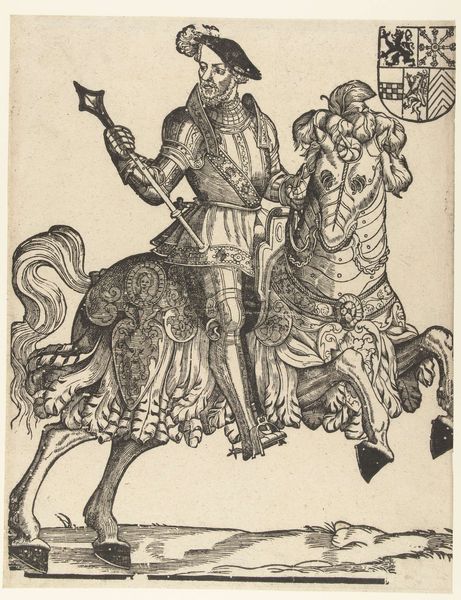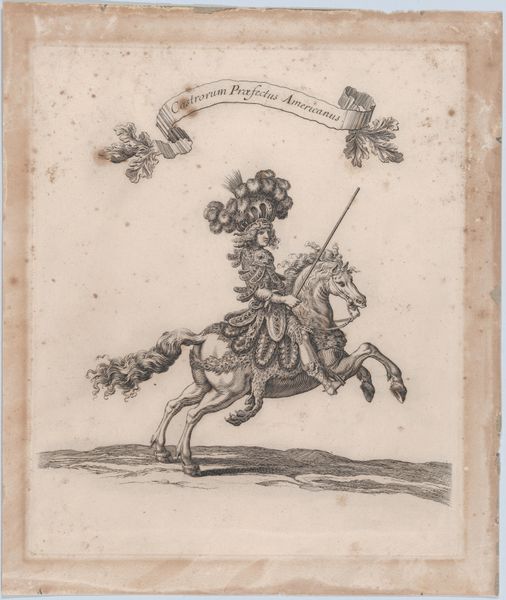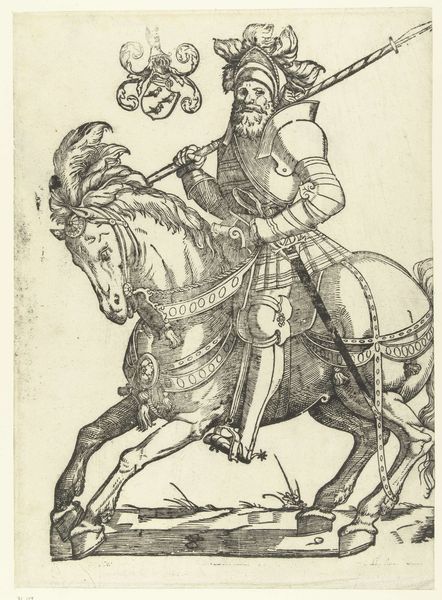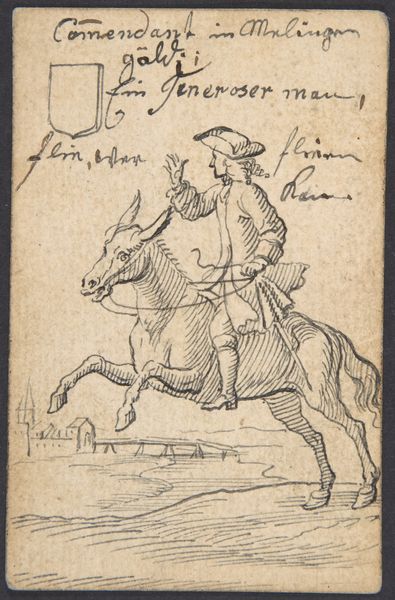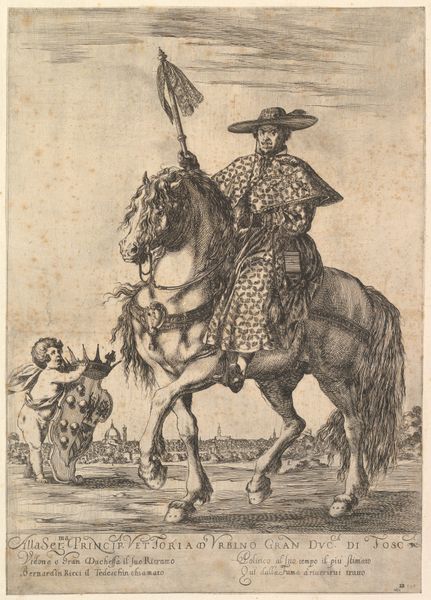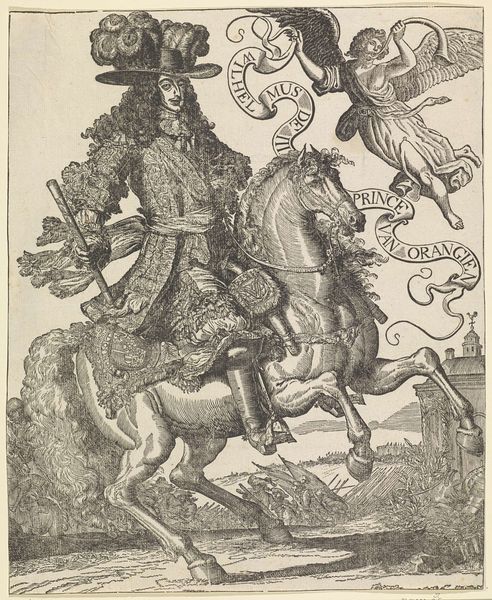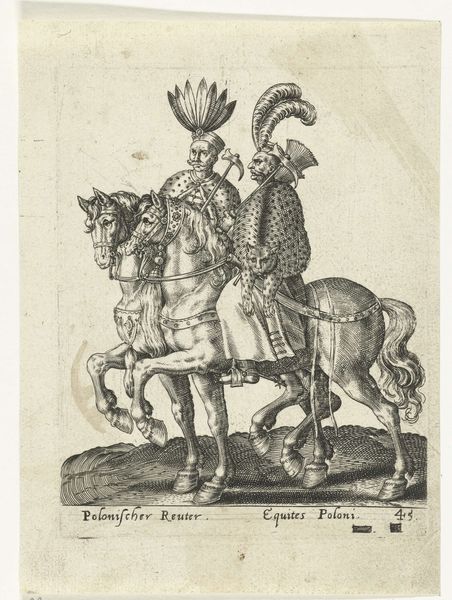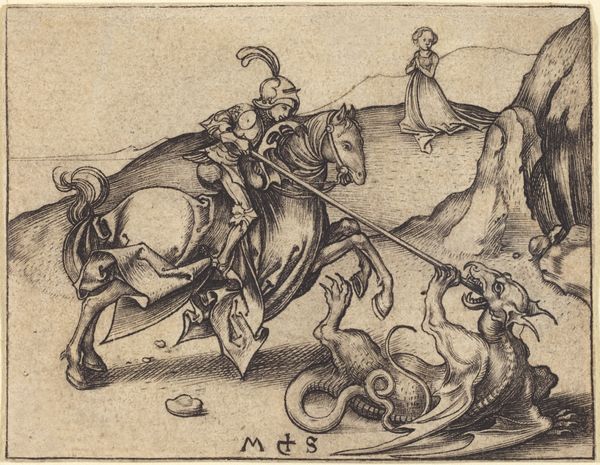
drawing, print, engraving
#
drawing
# print
#
11_renaissance
#
coloured pencil
#
history-painting
#
engraving
Dimensions: 49 mm (height) x 66 mm (width) (bladmål)
This engraving by Martin Pleginck, dating from the late 16th century, captures a rider on horseback, an archetypal image of power and nobility. But look closer: the horse rears, yet the rider seems almost nonchalant. The equestrian motif is an ancient one, found in Roman triumphal arches and Renaissance portraits alike, each echoing symbols of dominion. Think of Marcus Aurelius on horseback, embodying Roman imperial might. Yet here, the rider's relaxed posture hints at a different story. This isn't just about power; it's about the psychological interplay between control and chaos. Consider also the recurring image of the horse throughout art history, from the powerful steeds of Paolo Uccello's battle scenes to Delacroix's romantic visions. Always a symbol of untamed energy, yet harnessed by human will. The rider and the horse: perpetually caught in an eternal dance between instinct and intellect, forever mirroring our own inner conflicts.
Comments
No comments
Be the first to comment and join the conversation on the ultimate creative platform.
